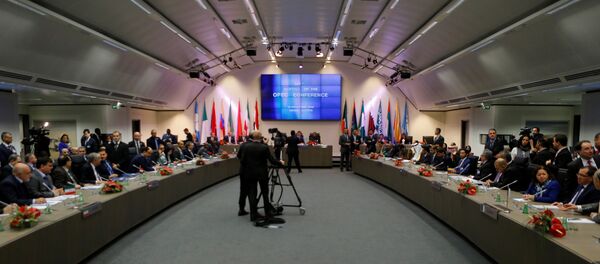On Wednesday, OPEC agreed to impose an oil production ceiling totaling 32.5 million barrels per day in an effort to stabilize the market. The production cut of 1.2 million barrels per day is effective on January 1, 2017. Non-OPEC countries have yet to finalize their participation in the production cuts, with Russia announcing its willingness to reduce its daily output by 300,000 barrels.
"I don't know, but we will not change the forecast, why should we?" Dvorkovich told reporters in a reply to a question on the long-term impact of the OPEC deal on oil prices.
Last month, Russian Finance Minister Anton Siluanov said that the Russian government is basing its budget plans for the years 2017-2019 on a conservative $40 per barrel baseline scenario. Oil prices have fluctuated between $45-50 per barrel after recovering from less than $30 per barrel in an ongoing slump.



